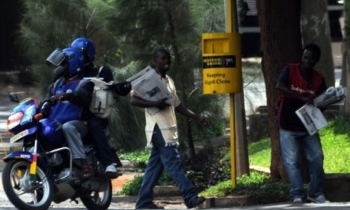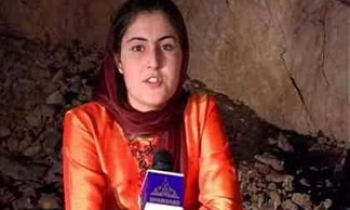Zimbabwe’s Constitutional Court ruled on June 12 that the country’s criminal defamation law violates a constitutional safeguard on freedom of expression. The ruling came in a case against two journalists charged with criminal defamation following a complaint by Munyaradzi Kereke, a member of the ruling Zanu PF party.
Kereke filed the complaint in 2011 against Nevanji Madanhire, editor of The Standard, and reporter Nqaba Matshazi in connection with an article he claimed contained false information about the Green Card Medical Aid Society, a hospital founded and owned by Kereke, who serves as its chairman.
The article, which The Standard published on November 6, 2011, reportedly stated that Kereke’s hospital was unable to pay its members and staff, and was going bankrupt. Later that month, Madanhire and Matshazi were arrested and released on bail, facing charges of criminal defamation.
The journalists challenged their prosecution, arguing that Zimbabwe’s criminal defamation was unconstitutional. On June 12 the full bench of Zimbabwe’s Constitutional Court unanimously agreed. “It is not necessary to criminalise defamatory statements,†the Court said in its ruling, Reuters reported. “Accordingly, it is inconsistent with the freedom of expression guaranteed by (the) constitution.â€
The Court also indicated that defamation cases should be brought in front of civil courts. The Court invited Zimbabwe’s justice minister to Opens external link in new windowshow cause why the Court should not strike the law down, but local observers expressed hope that last week’s decision would stand.
The International Press Institute (IPI)’s Alison Graham spoke with Justine Limpitlaw, a South African legal expert and communications law consultant in Johannesburg, about the Harare court’s ruling and the state of press freedom in Zimbabwe.
The author of the Media Law Handbook for Southern Africa, Limpitlaw has been pushing to decriminalise defamation and insult laws in southern Africa in a campaign spearheaded by African Union Special Rapporteur on Freedom of Expression and Access to Information in Africa Pansy Tlakula, bringing together organisations across the continent. In an April 14 interview, Limpitlaw told IPI she was “horrified†how little awareness there is about colonial-era regulations that affect reporters and editors.









